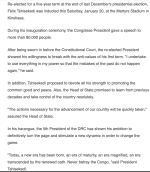Yep, we've been reduced to considering turd speeds...

Hint: 9.8 metres per second squared.

Without friction, or air resistance, that would mean 588.4 m/s, after 60 seconds, or in excess of 2,000 km/h.

Now that is much more interesting than the crap our fukhead Shano writes.
If you are not convinced, wait till one of these projectiles hits you in the back of your neck, the effect would be more devastating than a dum dum bullet.
I'm pretty sure you will not talk about Shane's shitty crap after, it would be more like: Holy fuck, this is real shit.
Life is all about relevance.
Shane is nothing more than a filthy cockroach, a flea, a nothing, a narcissistic twat.
I hope Shano reads this, he highly likely will.
Have a great weekend Shane, how about a game of golf with your mate Hoots.



